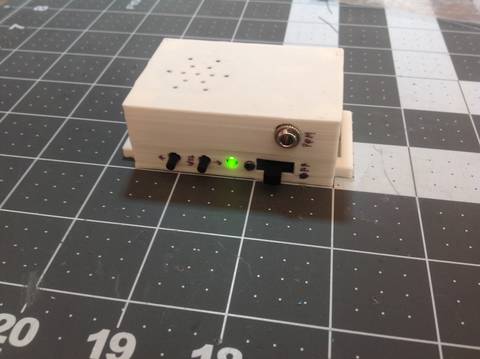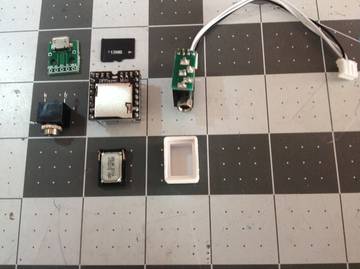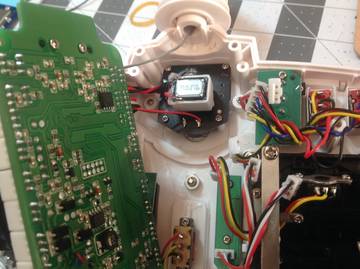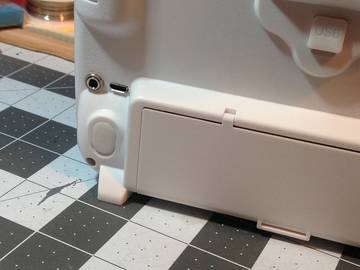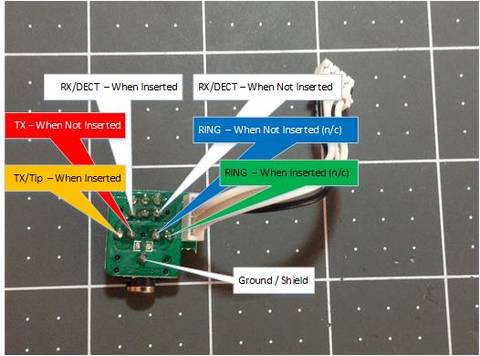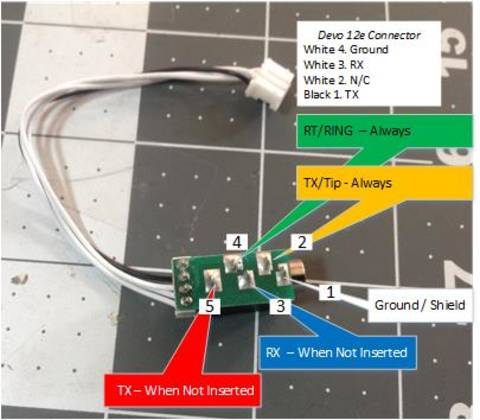This is an old revision of the document!
Table of Contents
Adding voice support
The unmodified Devo transceivers only support sound output using the internal buzzer. By adding a cheap voice module and a speaker, you can enable deviation to play custom mp3 files on switch action, telemetry alarm and many other things. The MP3 files used are located on a MicroSD card in an additional hardware module, the Devo transmitter needs a voice.ini within the media folder which contains information about the files available on the MicroSD card and each files duration. For details concerning usage, please refer to the manual.
Audio players supported
Currently the following MP3 modules are supported:
Most experience by users has been with DFPlayer Mini, so it is the recommended module.
In addition to the player module, the voice alerts system needs a speaker and power. In an internal installation, the addition of a USB port simplifies changes and updates.
Speakers tested:
Knowles 2403-260-00001, 15mm x11mm micro 8 Ohm speaker Radio Shack 273-092 29mm round micro 8 Ohm speaker
Most speakers perform better with the addition of a sound box
Optional Items:
Pololu Step Up/Step Down voltage regulator, Pololu part S7V8A, set to 4.2v Micro USB female jack wired to the USB TX/RX of the player to access voice files Mono headphone jack for headphones Indicator LED - wired to the Busy port it will blink when the voice is playing Plenty of 30 gauge wire and/or Micro JST 2.0 PH 2-Pin Connector, M/F pairs
Wiring diagram
Communication between the MP3 module and Deviation is handled by a 9k6 serial signal which is by default sent to the trainer jack of your deviation transmitter. This means, that voice will not be available when using the trainer port for PPM in- or output.
User Deal57 created the following schematic for wiring a DFplayer to the trainer port:
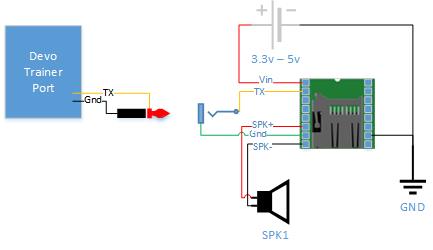
This is an example of an external voice box. Use a 1/8“ (3.5mm) mono cable to connect from the Devo trainer port (labeled DSC) to the voice box. In this case the box includes volume buttons and has cutouts to allow access to the USB port and MicroSD card of the DFPlayer.
These are the parts used for an internal voice module for the Devo 12e.
For internal connections, the trainer port connector offers solder points so you can tap directly into the PPM TX line from the processor. For the Devo 7e, 6s, 8s, and 10 (possible others?), use these solder points for the PPM TX and ground lines.
For the Devo 12e, the trainer port connector has these solder points:
There are two Devo transmitter configurations that have exceptions to these connections:
Devo7e-256 (a.k.a. Ultimate7E)
Besides using the trainer port, you can solder directly to a free MCU pin for UART5. In hardware.ini you have to enable the corresponding line to use UART5. Phantom8 provided the following picture:
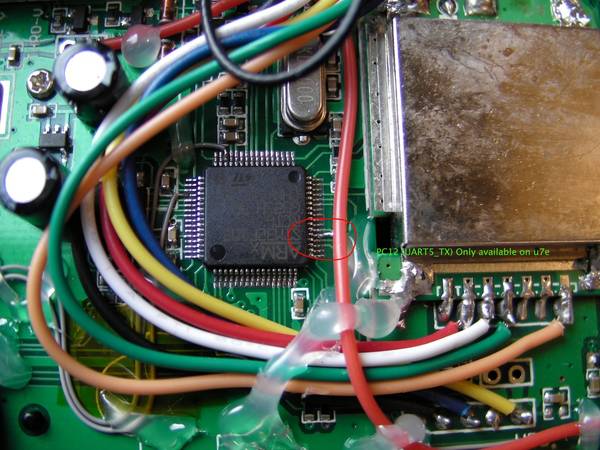
Devo12/S
The serial signal is not available at the trainer port, but rather on a neat pin header labeled “TX/RX” on the Main board - perfect for internal installation of a DFPlayer module.
Software Configuration
The used audio player (and possibly the special wiring for Devo7e-256) has to be enabled in hardware.ini located in the root directory of your transmitter:
;Audio player connected to UART (Devo12/S internally, others via trainer port): audiofx, dfplayer ;voice= ; ;Enable if audio device is wired to uart5 instead of ppm on devo7e-256 ;voice-uart5=1

